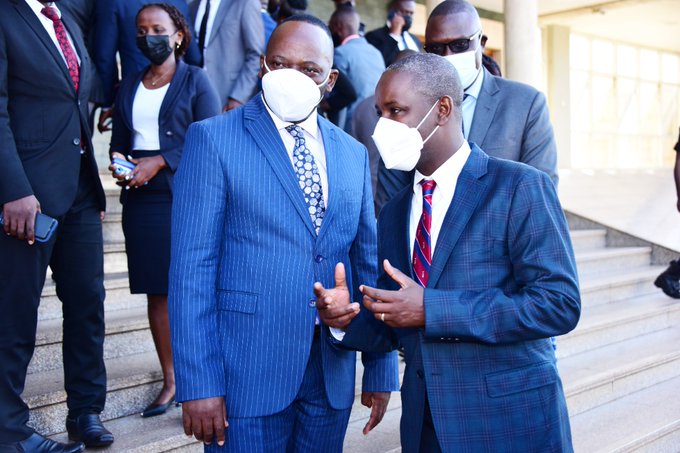
Post legislative scrutiny should be a core part of MPs mandate, the Deputy Speaker, Thomas Tayebwa, has advised.
Tayebwa who was opening a three month training for policy analysts from the offices of the Leader of Government Business and Leader of the Opposition on Monday, 06 June 2022, said that many of the laws passed are not known to the public.
“Yesterday, I was reading the Sunday Monitor, they were talking about the Bio Fuel Act and many people do not know that we have that law. I have met many people pushing for it yet we have it,” said Tayebwa.
He observed that due to lack of post legislation scrutiny, there is little knowledge on the effect the laws passed in Parliament have had on the population.
“We have focused on pre-legislation and even on the side of cabinet, I have not seen any one doing post legislative scrutiny,” revealed Tayebwa.
He added: “The duty should be on us as Parliament to do post legislative scrutiny and say since we passed this law, what has been its impact on the society? How has it been received by the community? Or how come the law is not being felt.”
Tayebwa was concerned with the tendency by many entities wanting to introduce new bills saying the focus should be on improving the existing ones. He warned that this tendency will lead to duplication of laws and thus weakening their efficacy.
“I see everyone is coming up with a law. Can’t we improve on the existing laws? Do we need a law for each and everything in the society? We are going to have around 2,000 laws but weak and fragmented,” he said.
The Leader of the Opposition, Mathias Mpuuga, requested Tayebwa to use his position and support MPs carryout research as one of the ways of improving the quality of debate and Parliament resolutions.
“We rely on the research department but I do not think the department has even 50 staff to support the over 500 MPs. If on a daily basis a member has a request to make, this will scatter in the entire department,” said Mpuuga.
He said the three month training is expected to boost the technical staff’s ability to deeply understand their work and support MPs engage in quality debate.
